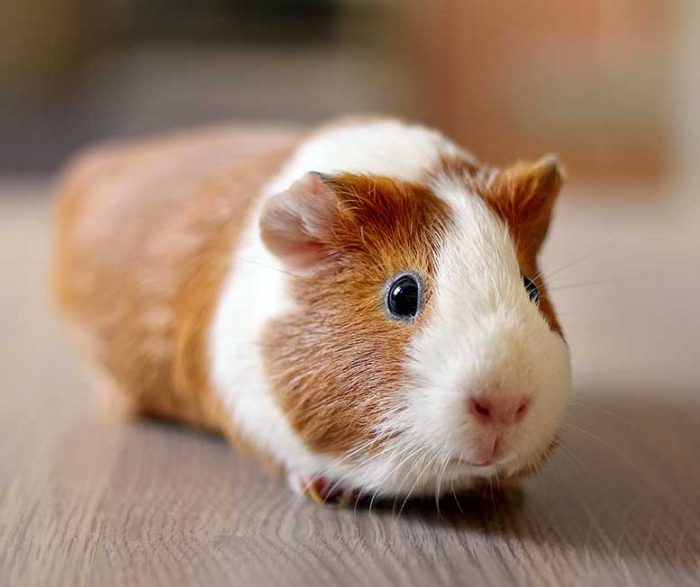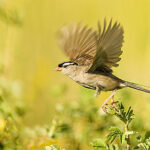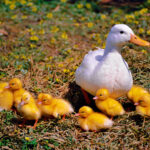
Guinea pigs are adorable, social, and gentle pets, making them perfect for first-time pet owners. However, they require proper care and attention to stay happy and healthy. In this guide, we’ll cover everything you need to know about guinea pig care, from setting up their habitat to feeding and health maintenance.
Choosing the Right Guinea Pig
Male vs. Female Guinea Pigs: Which One to Choose?
Male guinea pigs (boars) and female guinea pigs (sows) have different temperaments. Boars tend to be more dominant and may require extra socialization, while sows are usually calmer. Both make excellent pets, so choosing depends on your preference and whether you plan to have more than one.
Adopting vs. Buying: Where to Get a Healthy Guinea Pig
Adopting a guinea pig from a rescue or shelter is a great way to give a pet a second chance. If buying from a breeder or pet store, ensure they are reputable and provide healthy, well-socialized guinea pigs.
Essential Supplies for Your Guinea Pig
Best Guinea Pig Cages: Size, Type, and Setup
Guinea pigs need a spacious cage, at least 7.5 square feet for one guinea pig and 10.5 square feet for two. C&C cages are highly recommended due to their flexibility and space. Ensure the cage has good ventilation and a solid bottom to prevent foot injuries.
Safe Bedding Options: What to Use and Avoid
The best bedding options include paper-based bedding, aspen shavings, or fleece liners. Avoid cedar and pine shavings, as their strong scents can cause respiratory problems.
Food and Water Essentials: Choosing the Right Diet
Guinea pigs need fresh water daily, provided through a water bottle or dish. Their diet should consist of high-quality Timothy hay, fortified pellets, and fresh vegetables like bell peppers and leafy greens.
How to Set Up a Comfortable Guinea Pig Habitat
Ideal Cage Placement and Environment
Place the cage in a quiet, temperature-controlled area away from direct sunlight, drafts, and loud noises. Guinea pigs thrive in temperatures between 65°F to 75°F (18°C to 24°C).
Temperature and Humidity Requirements
Excessive heat or cold can be harmful to guinea pigs. Keep the humidity levels moderate and ensure proper airflow to maintain their health.
Feeding Your Guinea Pig the Right Diet
Fresh Vegetables and Fruits: What’s Safe and What’s Not
Guinea pigs require Vitamin C daily, so feed them bell peppers, parsley, and small amounts of fruit like apples. Avoid toxic foods such as onions, garlic, and avocado.
Best Hay and Pellets for Guinea Pigs
Timothy hay should make up 80% of their diet to aid digestion and keep their teeth healthy. Use pellets that are high in fiber and free from artificial colors or seeds.
Hydration: How Much Water Do Guinea Pigs Need?
Always provide fresh, clean water. Check the water bottle or bowl daily to ensure it’s not empty or contaminated.
Daily and Weekly Guinea Pig Care Routine
Cleaning the Cage: How Often and Best Practices
Spot clean daily by removing waste and old food. Do a deep clean weekly, replacing bedding and scrubbing the cage.
Handling and Bonding with Your Guinea Pig
Always approach guinea pigs calmly. Support their body while holding them and let them get used to your voice and scent.
How to Socialize a Shy Guinea Pig
Shy guinea pigs need time to adjust. Offer treats, speak softly, and allow them to explore outside their cage under supervision.
Health and Wellness: Keeping Your Guinea Pig Healthy
Common Guinea Pig Health Issues and Symptoms
Look out for signs of illness like weight loss, sneezing, or unusual behavior. Common issues include respiratory infections, dental problems, and scurvy.
How to Check for Signs of Illness
Perform regular health checks, looking for lumps, changes in fur, or difficulties in movement. Any concerns should be addressed by a vet.
When to Take Your Guinea Pig to the Vet
If your guinea pig shows signs of distress, lack of appetite, or unusual breathing, consult a small animal veterinarian immediately.
Grooming and Hygiene for Guinea Pigs
How to Trim Guinea Pig Nails Safely
Guinea pigs’ nails grow continuously and should be trimmed every 2-4 weeks using small pet nail clippers.
Do Guinea Pigs Need Baths? Proper Cleaning Tips
Guinea pigs are self-grooming, so bathing is rarely necessary. If needed, use warm water and a small amount of guinea pig-safe shampoo.
Fun and Enrichment Activities for Your Guinea Pig
Best Toys and Playtime Ideas
Guinea pigs love tunnels, hideouts, and chew toys. Providing different textures and objects helps keep them entertained.
How to Make DIY Guinea Pig Toys at Home
Use cardboard boxes, paper towel rolls, and fleece scraps to create safe, engaging toys.
Common Guinea Pig Behavior and How to Interpret It
Why Does My Guinea Pig Wheek, Purr, or Popcorn?
- Wheeking: Excitement, often for food.
- Purring: Contentment, especially when petted.
- Popcorning: A happy jump seen in excited guinea pigs.
Understanding Guinea Pig Body Language
- Freezing: Fear or uncertainty.
- Chattering Teeth: Warning sign to back off.
- Licking You: Affection or curiosity.
How to Care for an Elderly Guinea Pig
Aging Signs and Special Care Needs
Older guinea pigs may become less active and require a softer diet. Provide extra comfort by using padded bedding.
Adjusting Diet and Habitat for Senior Guinea Pigs
Ensure easy access to food, water, and warm bedding. Regular vet check-ups become more crucial as they age.
Conclusion: Ensuring a Happy and Healthy Life for Your Guinea Pig
Guinea pigs are rewarding pets that require dedication and proper care. By providing the right diet, habitat, and attention, you can ensure your guinea pig lives a long, happy life.







